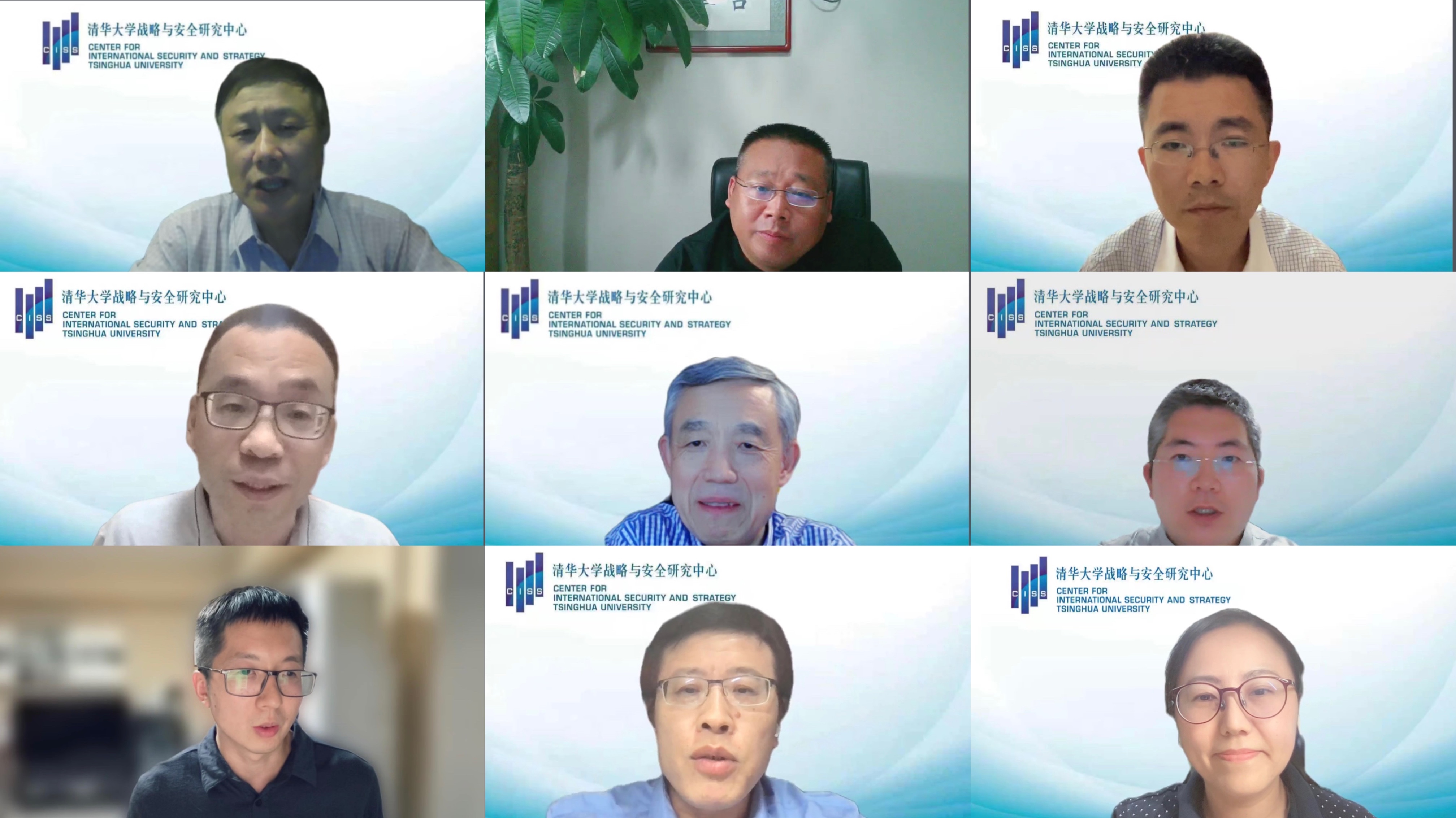On June 9-10, 2022, the Center for International Security and Strategy (CISS) of Tsinghua University held the 41st Security and Strategy Seminar titled “The Landscape and Hotspot Issues in the Asia-Pacific Region (Economic Field).” The two-day event convened more than 20 scholars from Tsinghua University, Peking University, Renmin University of China, Chinese Academy of Social Sciences, Chinese Academy of Sciences, University of International Business and Economics, Nanjing University, Shanghai University of Finance and Economics, China Institutes of Contemporary International Relations, Pangoal Institution, Chinese Academy of International Trade and Economic Cooperation, and China Association of International Trade, among other institutions. The two sessions were moderated by CISS Deputy Directors Chen Qi and Xiao Qian respectively, with concluding remarks made by Director Da Wei.

It was noted at the seminars that security and political factors including the COVID-19 pandemic, the Russia-Ukraine conflict, and US-China competition have sent shockwaves through the Asia-Pacific economy, hitting the stability of global industrial chains and trade rules and posing new challenges to China’s domestic and intra-regional economic and technological advancement. Panelists believe that the US Indo-Pacific Economic Framework for Prosperity serves as a political tool for the US to limit China’s influence in the region, with the intention to weaken CPTPP and RCEP, which don’t include America, and to build a new US-centered framework. However, the unsubstantial and unbinding framework has limited appeal to regional powers. In the high-tech sector, the US and other Western countries are working towards “de-Chinaization” and trying to boost their economic resilience through investment, alliances and other internal and external policies, which could hurt China’s industrial and technological development and security.
Panelists suggested that China should build on its existing strengths, continue to open up, ensure the optimal use of the domestic and international markets and resources, strengthen its strategic planning for the peripheral areas, and make careful planning for the layout in supply chains as well as its financial and monetary policies. In addition, it should continue to pursue high-quality growth and enhance its strategic cornerstones, so that it can better navigate the changing global landscape and respond to external uncertainties while ensuring the stability of its own development.
This event brought the CISS seminar series “The Landscape and Hotspot Issues in the Asia-Pacific Region” to a successful conclusion. Over the past month, this series have held 8 webinars featuring 63 experts. Based on this, CISS mid-year forum will take place at the end of June for further discussions and in-depth analysis on related topics.

